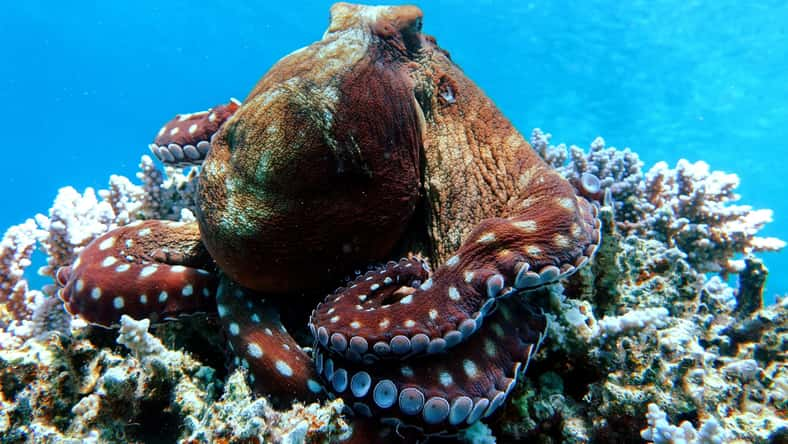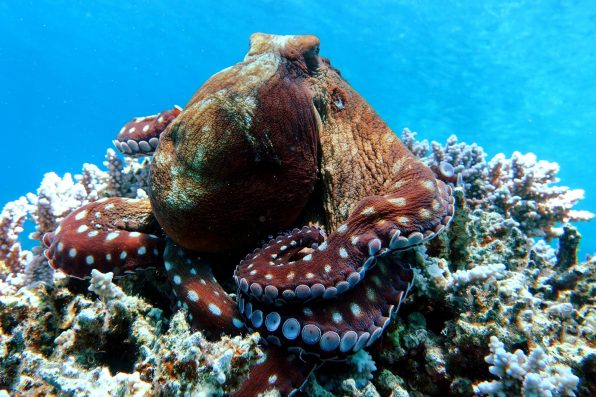Octopuses Are Teaming Up With Fish To Track Down Prey And Punching Those That Don’t Help Out

Fish and octopuses in the Red Sea are teaming up to track down prey, which is likely getting them better results than when each creature works alone.
Under the direction of an octopus, fish will search for hidden prey and signal where a smaller fish or mollusk can be captured. But if any fish aren’t contributing to the cause, the octopus will punch them away.
Octopuses are generally considered to be solitary creatures, but this new research has revealed more about their social behavior. They are capable of leading various species of fish and can tell which ones are helping and which ones are trying to mooch off the work of the others.
“Nobody really knew that octopuses have this sophisticated social life—not with other octopuses, but with other species,” said Iain Couzin, a co-author of the study and an evolutionary biologist and director of the Max Planck Institute of Animal Behavior.
During dives in the Red Sea at a reef off the coast of Eilat, Israel, the research team collected about 120 hours of underwater footage. They caught 13 scenes of a big blue octopus (Octopus cyanea) hunting with different species of fish. The animals all appeared to have their own roles.
“These fish function as an extended sensory system for the octopus,” Eduardo Sampaio, the lead author of the study and a researcher at the Max Planck Institute of Animal Behavior, said. “The octopus can basically sample or explore the environment just by watching them.”
The blue goatfish (Parupeneus cyclostomus) came to the octopus’s aid the most. They would investigate new crevices and hover over the area or swim back and forth between the crevice and the octopus to show the octopus where to find prey.
The octopus seemed to punch at the fish to maintain social order. The species that received the most punches was the blackfish grouper (Epinephelus fasciatus).
Overall, the fish did not display aggressive behavior toward the octopus, indicating that it was the leader of the group. The octopus also decided when the group would move to another area.

Vitalii6447 – stock.adobe.com – illustrative purposes only, not the actual octopus
When the fish detects prey concealed beneath a rock, the octopus will wrap its body around the stone to trap the unfortunate animal.
The big blue octopus performed the wrapping action fewer times with the hunting party than it usually does solo.
It is believed that fish benefit from these hunting groups because an octopus can just reach into crevices where prey is hiding and draw them out. The octopus probably receives the most benefits, as it can simply follow the fish to food.
The videos were unable to capture whether the members of the hunting party remained the same. In the future, the team wants to figure out if the animals recognize each other, as that would make the social interaction even more complex.
The study was published in Nature Ecology & Evolution.
Sign up for Chip Chick’s newsletter and get stories like this delivered to your inbox.
More About:Animals